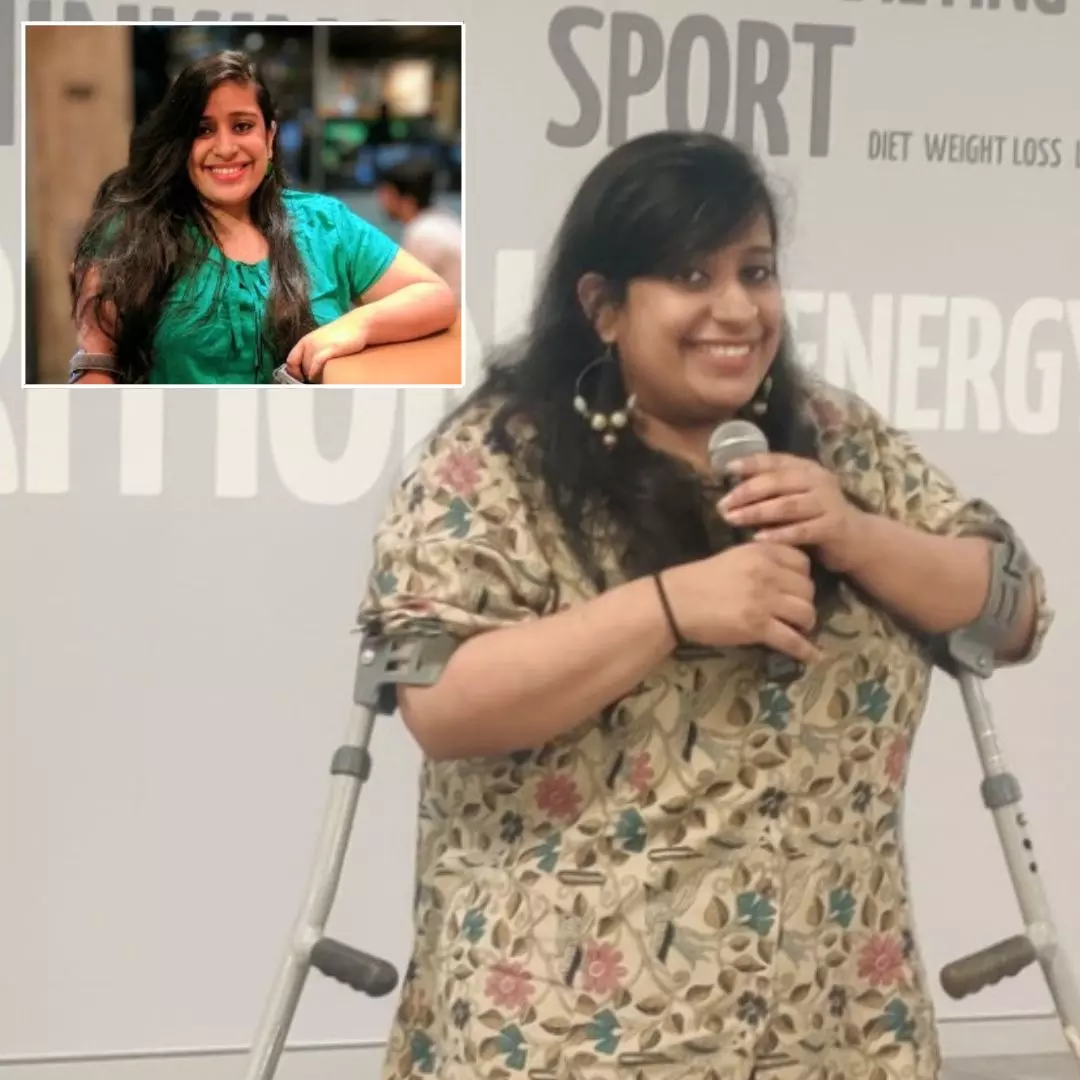Whenever you come across a bit from a stand-up comic, it usually has something to do with their experiences or life. There’s a good share of engineering stories to dating life narratives that flood the comic spaces. So when I ventured into stand-up comedy, it was clear right from the start that I would joke about my disability. As an advocate for disability inclusion, humour was one of the effective (and tested, in my case) ways to put across the message.
I was born with Spina Bifida, a condition that prevents my spinal cord from fully developing. For most of my life, I have had to deal with stigma and inaccessibility that came along as a free package with being disabled. Around 2016, I was stuck at home for a couple of months due to a fracture, and I came across a few stand-up comedies on Youtube. Watching these videos, I thought to myself, “Arey, even I am sarcastic, so why not club it with comedy on disability?” and from there started off my experiment with humour.
Putting Sarcasm To Use
At the time, I also happened to be among the countable stand-up comedians with a disability. My first time stepping onto a stage to humour my disability was coincidentally on World Disability Day on December 3, 2018. My work was received widely as it turned out to be a first-of-its-kind, but it also made the audience uncomfortable with some truth bombs. Much of my personal narratives and problems were a touchy subject for the audience, and they would often ask me, “Why don’t you do regular jokes?” My response back then and even today continues to be the same – I have no problem making regular jokes, but I want to talk about disability because that is what I am facing, and that is what comes to mind.
Comedy is a medium for me to start a discussion around disability and help people see past their biases. When people see a disabled person, they are overwhelmed with this notion of being a saviour and rush to help them. But that shouldn’t be the case, and people should learn first to ask if the person requires any help whatsoever. Within that brief 20-minute window for my comedy and interactive session with the audience, I try to convey many such messages to a largely unaware crowd about how to behave around differently-abled people. Through my bits with comedy, I highlight the need to break past these barriers and stereotypes that we tend to attach to people and disabilities.
Over time my sharp humour began evolving around multiple other issues, from unwanted help from people, apathy, household chores to dating and even more. I still have a long way to go in mastering the craft of comedy, and it’s not an easy task. In my case, it gets a bit more challenging since there are many layers I would have to address because I go to the stage with my crutches and my humour features disability. Hopefully, one day I would reach the David Chapelle level of comedy and be able to stand in front of an audience and make jokes unapologetically.
Either Pity Or Inspirational – There’s No In Between
One of the common things I have noticed as a person with disability is that we are either looked at with pity or are inspirational. There is really no in-between. Since I was born with spinal bifida, people have called me “inspirational” for doing stand-up comedy. This is just yet another stereotype that just because I am differently abled, doing a normal thing should be praised. I have tried addressing this multiple times and have constantly been told that more than calling me an inspiration, hang out with me and swear at me as you normally do. That would make me feel like an equal rather than being seen as an inspiration.
On an everyday basis, I have had to deal with stereotypes of people and the lack of accessibility within the system. I would have to spend more than the average able-bodied to access basic daily necessities, be it using public transport or a public restroom. Even rickshaws charged me double the metre rate, and there are these times when I have to work my way around things. For over seven years, I have been addressing these issues and started the “Give Some Space” initiative with a friend to raise awareness on disability issues through social media. The page actively discusses aspects such as non-disabled friendly infrastructure, inclusion in infrastructural and city planning, and many more concerns the differently-abled face.
Apart from this, I have also conveyed my thoughts through writings, a 12-minute documentary titled ‘Disability — a State of Mind,’ on-ground awareness campaigns, interactive visual platforms, and advocacy. Hopefully, these actions will soon turn into reality, and every place will be truly inclusive for all.
If you, too, have an inspiring story to tell the world, send us your story at mystory@thelogicalindian.com













